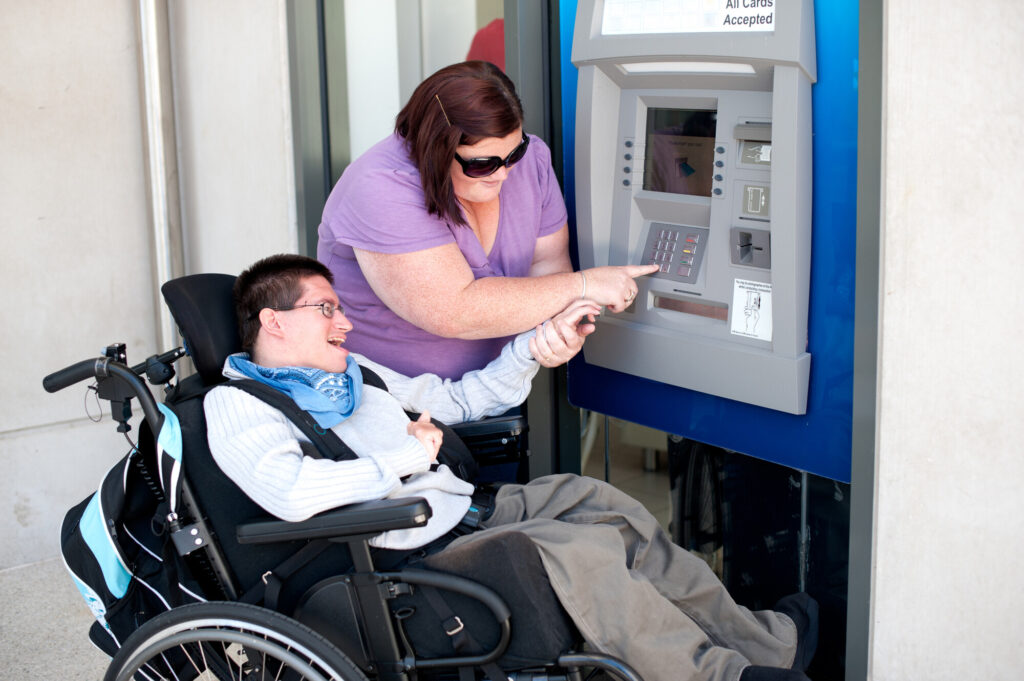Why Make a Financial Plan
Everyone needs a plan for how they will pay for the things they want and need. A financial plan shows the money and resources you have now, how you can save over time, and what you want to pay for—like housing, health care, or activities that matter.
For people with intellectual or developmental disabilities (IDD), creating a financial plan is a good way to set goals and make choices. Find out what to include in your plan, where money can come from, what special saving tools are available, and how to get help.
How to Get Started
Start small and build your plan step by step.
- List current income, benefits, and savings.
- Write one or two short goals (where to live, work, services needed).
- Talk with a trusted professional who knows disability benefits.
It may be helpful to talk with a special needs attorney or financial professional who understands disability benefits and issues. Use our Resource Directory to look for professionals in your area. This guide to help choose a lawyer will make sure you’re asking the right questions when looking for an attorney to support your family’s planning.
Where Money Can Come From
It’s important to think about all the different ways you might get money and support. People often combine several sources to pay for daily needs and goals. Each source has rules, so it helps to list what applies now and what might change later.
Your financial plan might include money from:
- Government benefits: Programs from your city, state, or federal government
- Work: Wages from a job
- Family help: Many families can contribute financial support

Ways to Save Without Losing Benefits
Many people with disabilities and their families use special accounts to save money without losing their benefits.
- Special needs trusts let families save money for a person with disabilities while protecting their benefit eligibility.
- ABLE accounts are savings accounts that let eligible people save for disability-related expenses without losing benefits.
Talk with a professional to learn which option is best for you. Depending on your situation, you might want to use a special needs trust, an ABLE account, both, or neither. Learn about both options, so you can decide what works best for your life and goals.
Ready to Start Planning?
Our future planning template makes it easy to get started! Writing a future plan for a person with IDD helps explain daily routines, preferences, support needs, and goals for the future. It can complement legal and financial plans by providing personal details about the person that are not typically included in formal paperwork.
Remember to review and update this plan at least once a year. As life changes, this document should change too.
